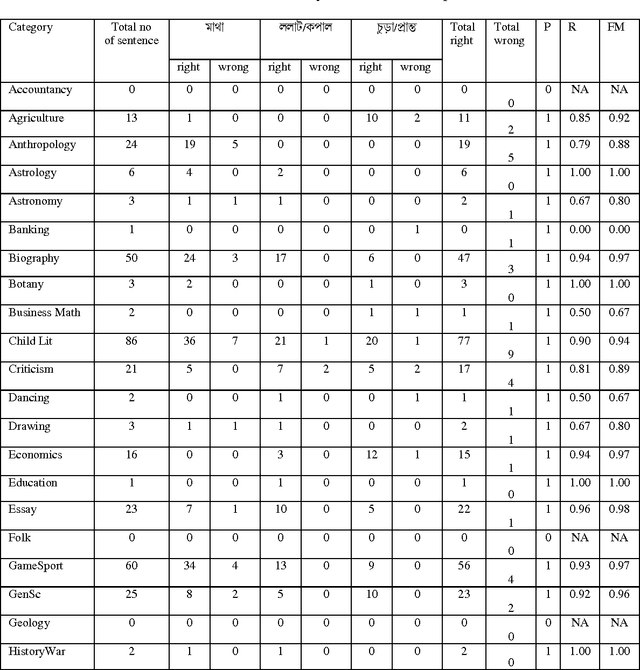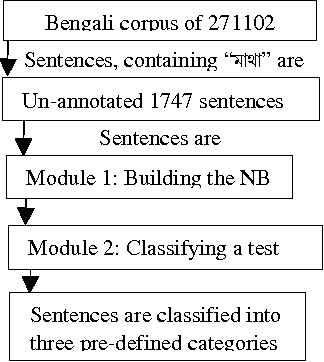Automatic classification of bengali sentences based on sense definitions present in bengali wordnet
Paper and Code
Aug 06, 2015



Based on the sense definition of words available in the Bengali WordNet, an attempt is made to classify the Bengali sentences automatically into different groups in accordance with their underlying senses. The input sentences are collected from 50 different categories of the Bengali text corpus developed in the TDIL project of the Govt. of India, while information about the different senses of particular ambiguous lexical item is collected from Bengali WordNet. In an experimental basis we have used Naive Bayes probabilistic model as a useful classifier of sentences. We have applied the algorithm over 1747 sentences that contain a particular Bengali lexical item which, because of its ambiguous nature, is able to trigger different senses that render sentences in different meanings. In our experiment we have achieved around 84% accurate result on the sense classification over the total input sentences. We have analyzed those residual sentences that did not comply with our experiment and did affect the results to note that in many cases, wrong syntactic structures and less semantic information are the main hurdles in semantic classification of sentences. The applicational relevance of this study is attested in automatic text classification, machine learning, information extraction, and word sense disambiguation.
 Add to Chrome
Add to Chrome Add to Firefox
Add to Firefox Add to Edge
Add to Edge